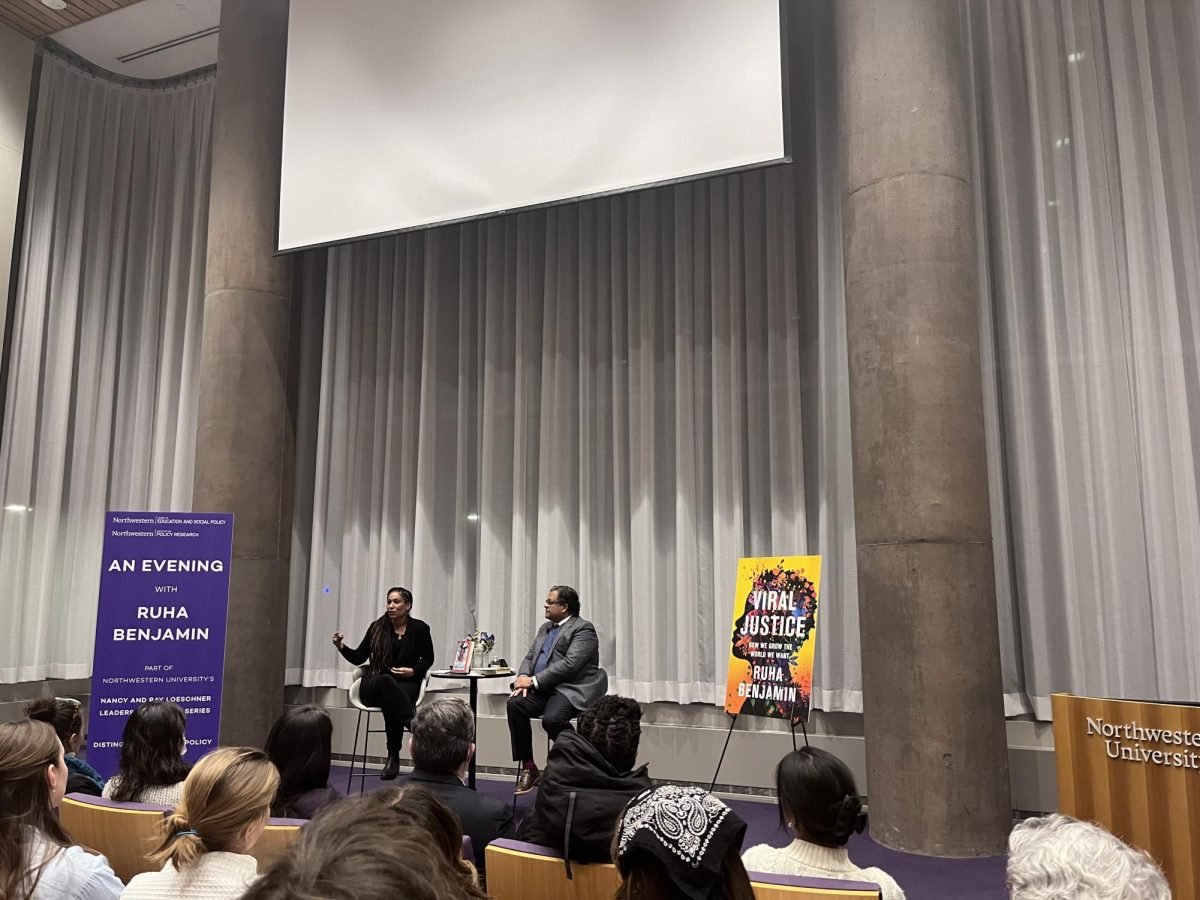Sociologist and Princeton professor Ruha Benjamin gave the Loeschner Leadership Lecture hosted by the School of Education and Social Policy and the Institute for Policy Research Tuesday in a full-house Segal Visitors Center auditorium.
Established in 2013, the Loeschner Leadership Lecture Series invites leaders in multiple fields of education to speak to the community.
At the event, moderated by SESP Dean Bryan Brayboy, Benjamin discussed her upbringing, research and books “Viral Justice: How We Grow the World We Want” and “Imagination: A Manifesto,” set to release next month.
“I am an ambivalent academic,” Benjamin said. “Teaching is my first mode, I teach in the same mode as I write.”
Benjamin is the Alexander Stewart 1886 Professor of African American studies at Princeton University, where she studies how advancements in science and technology intersect with social issues. She is also the founding director of the Ida B. Wells Just Data Lab, which works to bring a critical and creative approach to data, and a faculty associate in the Center for Information Technology Policy.
Brayboy commended Benjamin’s emphasis on imagination and the difference between critique and building.
“One of the things to appreciate about your work is an invitation to imagine,” Brayboy said. “If we’re academics, sometimes we get judged based on our merit. We all have an opportunity to really think about all the ways we benefit from the help and support.”
Benjamin attended Spelman College, a historically black college, where she earned her bachelor’s degree in sociology and anthropology.
She said you can’t purposely search for a sense of “self-worth” from an institution.
“I am at this institution that is purportedly for Black women, yet many of the Black women students felt alienated for a variety of reasons,” she said. “In hindsight, it taught me to not look at institutions for experience, and yet in places like that, you can feel like you don’t belong.”
She said her work Tuesday involves being a “student of abolition.” She added that her own familial experience with policing has made her consider the importance of applying abolition work beyond criminal justice.
Benjamin’s book “Viral Justice: How We Grow the World We Want” encourages such community change.
“I think of my work to incite society-building,” she said. “So much of the culture and discourse is tearing down and destroying. Constructive thinking or making connections is not incentivized as much.”
Her upcoming book “Imagination: A Manifesto” examines the theme that imagination is not a luxury. She said imagination can be used as a tool to challenge pre-determined systems and overturn old ideas.
Sachita Nishal, a fourth-year Ph.D. candidate in communications, said she was left “inspired” and “hopeful” after Benjamin’s lecture.
“I think she takes really complex subject matter and makes it very accessible,” Nishal said. “She talks about a host of issues and different ways in which inequalities exist around others, and she always leaves you on a hopeful note.”
Clarification: A previous version of this story misstated Ruha Benjamin’s position at Princeton University and misquoted her sentiments on institutional belonging. The Daily regrets the errors.
Email: [email protected]
X: @Jerrwu
Related Stories:
— SESP ranked No. 3 education graduate school






